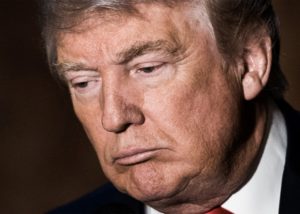Trump-style tactics and alternative facts threaten Buhari government
Published on Thursday 26 January 2017 Back to articles
U.S. President-elect Donald Trump speaks at his election night rally in Manhattan, New York, U.S., November 9, 2016. REUTERS/Carlo Allegri TPX IMAGES OF THE DAY – RTX2SPX6

Although Africa policy is far from the top priority for newly inaugurated US President Donald Trump, political tremors from the new order in Washington are being felt across the continent.
Some are practical, such as the boost given to US oil companies by Trump’s pro-business administration and planned cuts in US aid. Others are more ideological, such as harder-line policies on Islamist groups and migration.
Both sets of implications will demand attention from Nigerian policy makers in 2017. For the economic team under Vice-President Yemi Osinbajo, trends in the world oil market are crucial. The financial projections that underpin the 2017 budget, now being debated in the National Assembly, are premised on a baseline oil price of at least US$55 a barrel.
And the political fallout from the Trump Team’s questioning US aid levels to Africa – including several co-operation agreements with military forces on the continent – is considerable.
First to exploit the Trump message in Nigeria was the Indigenous People of Biafra (IPOB) movement, led by detained activist Nnamdi Kanu. As the presidential inauguration was under way in Washington on 20 January, the group told Nigerians that it would seek US backing for a Christian-based secession from Muslim-ruled Nigeria.
That, of course, is explosive in Nigerian politics. But it will find some resonance among the hard-line Christians in the southeast and south–south geopolitical zones. The residents of those regions already express the strong feeling that they are being punished for voting for Goodluck Jonathan and the Peoples Democratic Party (PDP) in 2015.
It would be much more electorally threatening for the President Muhammadu Buhari government – the ruling All Progressives Congress (APC) – if these sentiments started spreading in earnest across southwest Nigeria, which has been a bedrock of support for the Buhari government.
A centre of dissent has already emerged in the southwest, led by former Lagos State governor Bola Tinubu. Although Tinubu is Muslim, he has established a reputation for religious tolerance and, accordingly, has a strong support base among both followers of Islam and Christians. He has been making plain his dissatisfaction with the Buhari government.
Abuja insiders say that Tinubu is now regarded as a semi-detached member of the APC, and is likely to jump ship ahead of the 2019 presidential election – in alliance, perhaps, with former vice-president Atiku Abubakar, or even former president Jonathan.



